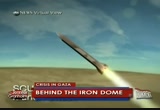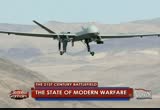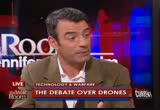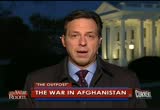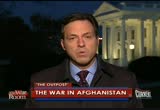tv The War Room With Jennifer Granholm Current November 19, 2012 7:00pm-8:00pm PST
7:00 pm
>> jennifer: i'm jennifer granholm. tonight on in "the war room," the nature of war fair is changing, while the nature of war sadly stays the same. a century's-old conflict as the crisis in gaza deepens, the most pressing question is what is the end game? but beyond the obvious want for stability and end of suffering, another question lingers, with terms like drone strikes becoming increasingly familiar it seems evident that modern warfare is entering a new stage, to which we ask, where does that leave the quest for peace? ♪
7:01 pm
>> jennifer: leaders from israel and gaza met in egypt today to discuss a possible drawdown with u.s. secretary general. for now, though the fighting continues. israeli air strikes killed nearly 40 people today, groups in gaza respondented by shooting nearly 100 rockets in israel. and on the israeli side of the border things appeared remarkably calm today. this picture has caused a stir online. it shows israelis watching passively as in-coming missiles sail over head. so why to israelis feel so
7:02 pm
comfortable out in the open as missiles fly above them? because of something called the iron dome. it's a defense system that uses radar to detect in-coming rockets and determine where they will land. if it is headed towards a populated area the gunner shoots the missile out of the sky. it is particularly good at detecting the smaller, older rockets that the palestinians use. iron dome has had an incredible 85% successful rate against the 300 rockets the palestinians have fired. the gulf missiles intercepted less than 10% of their target. iron dome has always made a huge difference.
7:03 pm
as of today, israel has only reported three deaths. in gaza the death toll is closer to 100 including 24 children and 10 women. but the price for each missile over $60,000 and the u.s. has helped to fund the system. president obama asked to help provide money to develop iron dome. the cost of rebuilding whole neighborhoods would be far greater than the cost of the interceptors. so joining me now is matthew duss from the center for american progress. matthew welcome inside "the war room." >> hi thank you. >> jennifer: you bet.
7:04 pm
so how has the iron dome system changed the nature of this conflict? would israel would have already moved to a ground war without it? >> i think it's probably safe to save that. without iron dome with the level of rockets we have seen fired out of gaza you would have seen a much greater fatality and much louder cry out from the government. >> jennifer: it seems to have staved off the war game for a period of time. the groups in gaza are using these old soviet rockets. would the iron dome be as effective against more modern rockets? >> no, but it is specifically designed to deal with these smaller rockets precisely
7:05 pm
because hamas and other militant groups are using these much lower-tech weapons to launch out of gaza. you mentioned the patriot system, there is the next stage of the patriot which is known as the arrow defense system but those deal with much higher tech and bigger missiles. >> jennifer: so is -- because it has been so successful will israel use a combination of the two? is the patriot missile, if it only has a 10% successful interception rate, are these more advanced patriot missiles up to the level of the iron dome? >> even though the patriot
7:06 pm
missile defense system made a lot of headlines as you mentioned the shootdown rate was much lower. but another system has been developed, called the arrow defense system, which even though it has not been tested in a similar way as the gulf war, is expected to be much more effective. >> jennifer: do you think other nations or even nato could replicate the iron dome technology and what impact would that have in the region if both sides had interception and maybe missiles not landing in populated areas on either side? >> right. obviously it is all together a good thing to prevent rockets from landing on civilians and towns and homes, but i think the danger is to create a sense of
7:07 pm
security -- let me be very careful about saying this the danger is having dealt with the threat from rockets, israel and the united states would no longer see a need to deal with the underlying causes of the conflict. >> jennifer: yeah. i want to get to that because i think that's a really really important point, but before we jump to the underlying issues which we will talk about, but could the type of weapon this is, because it has been so successful in deterring the kinds of rockets they have coming out of gaza could it stoke the develop of nuclear weapons? >> before we get to the question of nuclear weapons throughout history when you have a weapon, someone comes up with a way to
7:08 pm
defend against the weapon. it's sort of a rock paper, scissor's thing. as soon as you find a way to stop someone's weapon they come up with a way to get around your defense, so we'll be seeing both sides come up with new county measures to use against each other. >> jennifer: as you started to say technological advances might offer short-term help but may defer from actual peace-building efforts. do you see that as something that is in play right now? >> i do see that as a danger. we can look at the building of the separation wall during the second in tafada started by
7:09 pm
aerial sharon. obviously it's a good thing to stop bombers, but one of the unfortunate consequences is when things aren't blowing up all over the place there is less of a sense of urgency, so i would very much hope to see leadership on the obama administration and the quartet, while once again everyone is focused on this conflict, which tends to reassert itself every few years to not lose focus again, because we really cannot keep seeing these casualties every few years. >> jennifer: of course on the human side egypt is playing an role in helping broken the cease
7:10 pm
fire. >> well, hamas originated from the palestinian branch but as president he is behaving much more in line with egypt's actual interests. egypt has its own economic crisis, and this is just not something that morsi necessarily wants on his plate right now. as a matter of state crass he understands that he and egypt has an interest in playing a positive role. >> jennifer: all right. matthew, thank you so much for coming inside "the war room." coming up, they never question the mission. they are also set for duty and
7:11 pm
when they go into battle that means our sons and daughters don't. in many ways drone are perfect soldiers. plus combat outpost keeting was considered remote, but what happened there should hit all of us at home. later, there is the looming fiscal cliff the crisis in the middle east, and a shake up in his cabinet, so pardon the president is now is not the best time to take a personality test.
7:14 pm
7:15 pm
pure hershey's. [ explosions ] [ shouting ] >> jennifer: israeli air strikes continue on the gaza strip killing at least 21 people there today. but there are other less visible fronts to this war. it was described this way yesterday . . . in fact the israel government says it has been hit with more than 44 million cyber attacks since it began aerial strikes on gaza just last week.
7:16 pm
only one was successful in downing a website and only for about six or seven minutes. it's not just israel though in trying to fend off cyber attacks, so are we. the secretary of state said the u.s. is facing a potential cyber pearl harbor. >> it's a crippling cyber attack, where launched against our nation the american people must be protected. and if the commander in chief orders a response the defense department must be ready to obey that order and to act. >> jennifer: joining me now, eric schmidt national security reporter for the "new york times" and the author of the new book "counter strike". thank you so much for joining me
7:17 pm
inside "the war room." >> glad to be here. >> jennifer: we're talking an awful lot about wars and you have a certain expertise in that. this book "counter strikes" covers a lot in the new war that we have to wage against an unusual enemy like al-qaeda. how much is cyber warfare playing into the conflict both in israel and in our confrontations with al-qaeda? >> sure. as you mentioned in your lead-in, you see cyber warfare is definitely a part of the enemy structure going after israel. there is a conventional system up now knocking down some of these missiles. israel estimates as much as 90% of the missiles have been knocked down. the u.s. for example in its fight against al-qaeda has been
7:18 pm
able to hack into the cell phones of al-qaeda leaders and leave false and misleading messages, get into al-qaeda chat rooms, and they are able to go into the cyber chat rooms and forums, and duplicate the so-called websites of these cyber terrorists. >> jennifer: and this all comes from the department of defense? >> yes, exactly. highly classified research being done. working in close cooperation with the israeli government developing cyber weapons, cyber viruses, a key but very shadowy world we're entering into. >> jennifer: so the war against al-qaeda is an unconventional
7:19 pm
far, and one is the cyber attacks and another is the use of drones. and there is no small degree of controversy concerning the use of drones. >> sure. the military and intelligence agency is using them for surveillance, and they are known for attacking al-qaeda sites. they are the weapon of choice in going after targets that are hard to hit and trying to minimize the killing of civilians. but there is always some sort of blow-back. >> jennifer: because there may be civilian casualties?
7:20 pm
>> that's right. and that's being used as part of the propaganda so whether there are deaths or not, it almost doesn't matter. >> jennifer: do we know whether al-qaeda is close to getting that kind of technology? >> clearly they are working on it. the question is whether they will be able to develop the kind of armed drone technology the united states has, but certainly a number of countries are working on this technology. >> jennifer: so what is the level of congressional oversight? >> right now it's a little bit murky, because the intelligence communities have oversight over the cia, but increasingly the military's joint special operations command is using them in places like yemen and
7:21 pm
somalia, and the oversight, while fairly good is not quite as extensive as the intelligence side, and there are some gray areas where they almost take turns in shooting these missiles. >> jennifer: it's interesting to me the new war, the new -- whether it is cyber attacks or iron domes or drone technology, all three of those types of technologies would remove the human element at least when you play offense from the equation. does that pose a whole new level of moral choice for the united states? >> it does. as you pointed out, it reduces the risk obviously of american lives being put in jeopardy but leads to the temptation almost to have a push-button war, where
7:22 pm
you have the ability to strike targets from a long ways away and this would be the weapon of choice. so the ethical question is how much can you use this and how close to civilian populations do you do that and the enemy knows this. they put them near schools, basically populated areas. >> jennifer: uh-huh. so where are we now, with the time we have been in afghanistan, and the difficulty with pakistan where are we with al-qaeda? >> well, on the good news side of things the main al-qaeda leadership that were there on the original 9/11 most of those have been killed or captured but over the last decade al-qaeda has generated franchises in places like north
7:23 pm
africa who's member were involved in on attack on the american embassy in benghazi and sending fighters into syria, and in yemen those that were responsible for the so-called underpanteds bomber. so these different franchises while maybe not having think ability to carry out mass attacks like the 9/11 attack still can cause great violence. >> jennifer: really appreciate you coming in. thank you so much eric schmidt. >> thank you. >> jennifer: appreciate it. up next the saying it all depends on your point of view is especially relevant when discussing drones. there is a human dynamic that
7:24 pm
7:26 pm
unwrap your paradise. soft, sweet coconut covered in rich, creamy chocolate. almond joy and mounds. unwrap paradise. >> most of the media coverage and the u.s. government mind in the united states is that drone strikes are very precise, and they target with surgical precision particularly militants and terrorists. >> what we have documented is that drones kill not only terrorists, they kill many others, they kill civilians, they have killed women and
7:27 pm
children. >> jennifer: that is just a clip of a video put out by life under drones, which is a joint project between stanford and nyu. there is wide-spread support for many americans because they are seen as a more humane alternative. but the folks at life under drones say that's a false narrative, and they are calling on the u.s. government to reevaluate its drone policy so joining me to discuss drones is the man behind the life under drones project, james cavallaro. can i call you jim? >> you certainly can. can i call you governor? >> you can call me that on jennifer. welcome inside "the war room." >> good to be here. >> jennifer: so you spent all of this time researchings the drones in pakistan and you say
7:28 pm
there is a false narrative. describe what you meant. >> one area you saw in the video is one of surgical precision and no collateral costs. and we push back on both of those elements. so in terms of surgical precision, the technology is quite sophisticated, but the drone strikes are only as accurate as the intelligence. it could kill undesired targets, in other words civilians or others that should not be in the cross hairs. >> jennifer: and you have also got the impact of living under drones. and what is that? talk about that. >> first there are a significant number of civilian tragedies, people who survived and lost limbs, and survived and had many
7:29 pm
other physical injuries and many others who had relatives who had been killed. and there's also the effect that drones have on entire communities. just last night, anderson cooper was reporting, and he mentioned the presence of drones the buzzing, and the state of tension it was creating. we documented symptoms of people with ptsd other nervous disorders and community behavior. people are afraid to send their kids to school afraid to go to religious services -- >> jennifer: the argument back is, isn't it better than the alternative. there has been between 474 to
7:30 pm
881 civilians killed by drones in pakistan since 2004. now if you look at the alternative in terms of war, if you just look at since 2007 when they started keeping records of what was going on in afghanistan, civilian deaths afghanistan is a country that is five times less populous than pakistan, and because of the war they have had 11,000 deaths in a short amount of time. so if you have go in to try to get the targets, isn't it better to choose the method that kills fewer people. >> the problem is the assumptions that the only alternatives are drones or full-scale invasion. >> jennifer: what else is there?
7:31 pm
>> there are many states that have dealt with terrorism without full-scale invasion. we have threats of terrorism in the united states and we are using law enforcement procedures, and those are an alternative throughout the world. we now have six theaters in which we may be using drones. with very little congressional oversight as the last speaking mentioned, with very little civil oversight -- >> jennifer: when you say there's law enforcement, who would be doing the law enforcement? >> the fbi and other bodies in the united states are engaged in law enforcement measures. we need that as a first
7:32 pm
resource. >> jennifer: are you comfortable at least that talks with respect to hamas and israel have at least begun in terms of a cease fire? but it hasn't worked. >> unfortunately human history is replete with incident of violence, escalation of violence and warfare and we don't deny that there are situations where the united states has legitimate basis of using the force. we haven't declared war on pakistan, though. >> jennifer: of course not, but if you have had high-level al-qaeda targets, and a drone can take out that target instead of risking u.s. lives, don't you think that is not a
7:33 pm
bad thing? >> let me answer your question by giving a broader context, what the studies show is the vast majority of drone strikes don't hit those high-level targets. the majority of those kills are much lower-level operatives or civilians, and one of the things we need to think about is what happens when the united states is killing hundreds of people in northwest pakistan. how many future operatives do we create. >> jennifer: that's a really great point, but unfortunately we're running out of time. really appreciate you coming in. fascinated by this conversation, the technology, and getting at the university law professor and founder of the international
7:34 pm
7:35 pm
before the sneeze, help protect with a spray. before the tissue, help defend with a wipe. before the cold & flu season help prevent with lysol. because when you have 10 times more protection with each hand wash... and kill 99.9% of germs around the house with each spray... those healthy habits start to add up. up next still there are young and lysol has your family covered because that's our mission for health. [ voice of dennis ] ...safe driving bonus check? every six months without an accident,
7:36 pm
allstate sends a check. ok. [ voice of dennis ] silence. are you in good hands? but when joint pain and stiffness from psoriatic arthritis hit even the smallest things became difficult. i finally understood what serious joint pain is like. i talked to my rheumatologist and he prescribed enbrel. enbrel can help relieve pain, stiffness, and stop joint damage. because enbrel, etanercept suppresses your immune system, it may lower your ability to fight infections. serious, sometimes fatal events including infections tuberculosis lymphoma, other cancers, and nervous system and blood disorders have occurred. before starting enbrel your doctor should test you for tuberculosis and discuss whether you've been to a region where certain fungal infections are common. don't start enbrel if you have an infection like the flu. tell your doctor if you're prone to infections, have cuts or sores have had hepatitis b have been treated for heart failure, or if, while on enbrel, you experience persistent fever, bruising, bleeding, or paleness. [ phil ] get back to the things that matter most. ask your rheumatologist if enbrel
7:37 pm
is right for you. [ doctor ] enbrel, the number one biologic medicine prescribed by rheumatologists. >> jennifer: you are back inside "the war room." i'm jennifer granholm. we have spent a bit of time tonight talking about the conflict between israel and the palestinians, but what hasn't gotten much attention on any night is the war in afghanistan. did you know it is america's longest war. and at least 2025 members of the u.s. military have died. and among the dead with eight u.s. troops that died during the battle of kamdesh. they within stationed at combat outpost keating.
7:38 pm
in a few book "the outpost, an untold story of american valor," jake tapper tells us what really happened there. jake welcome inside "the war room." >> thanks, governor, great to be here. >> jennifer: so tell everybody what happened and why you wrote this story about the eight members of the u.s. military were killed. >> well, my son was born on october 2nd, 2009, and a day later i was in the recovery room with my wife holding my son and i saw out of the corner of my eye about this attack of about 400 taliban attacking roughly 50 u.s. soldiers who were in this incredibly vulnerable outpost, and as i was holding my son i heard about eight other sons were all died in some act of
7:39 pm
heroism. and this became a story i wanted to know more and more about, and nobody else was writing it. nobody was answering the questions i had in my mind and it became a history of this one remote outpost, all of the people who served there, what they accomplished, and how it was attacked and how it came to be that the camp was attacked. >> jennifer: as somebody who has spent a lot of time with the families of soldiers who have died, i know one of the most -- if not the most important thing is that they be remembered, and this is obviously a great tribute to those men who died. why, though, was this outpost located in such a vulnerable spot? >> well, there were two reasons. first of all the reason the camp was being put there in 2006 was
7:40 pm
to monitor the flow of insurgents. two, because there were so few helicopters in afghanistan at the time they were really all in iraq of the favorite war of the then commander in chief, the military had to make due with resupplying camps on the road. and there weren't many options to put a camp next to the road. so it really had to do with the limited resources that were being sent to u.s. troops in afghanistan at the time. >> jennifer: so jacob -- jacob -- jake obviously with petraeus
7:41 pm
and others was that the right move for us? >> well, the book does look at counter insurgency the u.s. going into these areas, trying to get locals to establish ties with the afghan government establish ties with u.s. forces and win them more so they do not want to align themselves with the enemy. and the book is basically an entire history of counter insurgency in this entire area. the americans do win over to a degree a lot of the locals. so it is not a failure, there are successes, but there is a catastrophic event that changes the entire dynamic in the valley, so there is a chasm. and then everything goes to hell. so it's kind of just an anecdote
7:42 pm
told in very human terms. >> jennifer: well, i appreciate the fact that you wrote it. since you are here and know the ins and outs of things, i want to turn to current affairs, it was say that susan rice mislead the country on the attack in libya. >> what is interesting about that is obviously house members have no say whatsoever in nominations to be secretary of state or any other cabinet position and it would seem if people have concerns about what ambassador rice said and i was one of the people she
7:43 pm
said it to she talked about how it was a protest outside the benghazi console late that went awry, that was hijacked by extremists, i'm one of those individuals, so i want a full accounting of what she said and why she said it, i would think confirmation hearings would be a good place to get that information out. >> jennifer: it seems to me the conversation has moved to who changed and why were the talking points changed and were the talking points themselves accurate. quickly, you covered the debt ceiling crisis of 2011. do you get a sense that this time cooler heads are prevailing. >> well, governor it is only november right now, so everybody is behaving themselves right
7:44 pm
now, nobody wants the stock market to be falling any farther into the sea. i certainly as an american hope they'll be able to get their act together, but i don't think we'll know until we get closer to the end of december. because that's how politics generally work, tough things are not accomplished until they absolutely have to be. >> jennifer: yeah, i'm placing my bets now. but we will see. jake, thank you so much for joining us. and up next, stand your ground that's become the progressive message to president obama of late, but where does that leave another well-warn phrase pick
7:46 pm
7:48 pm
>> obama: if senator mccain and senator graham and others want to go after somebody they should go after me. >> jennifer: that's president obama standing up for susan rice the woman that many believe will become the next secretary of state. with me to talk about the president's new-found moxie is keli goff, she is the political correspondent for the root. keli, welcome back inside "the war room." >> always great to be back. >> jennifer: great to have you. president obama has been known for his cool demeanor. do you think we'll see a more forceful president in his second term. >> if that press conference is an indication, apparently so. i wrote a peace about how a lot
7:49 pm
of african-americans and progresses wanted him to be a little more forceful. and i compared him to arthur ashe, who let his racket speak for him, which is different than the serena williams of the world. and i think we might have seen arthur ashe in the first term, and i think we're getting a little serena williams in this second term and progressives are kind of digging it. [ laughter ] >> jennifer: we love when our president stands up for sure. he wasn't wild, but he was strong. >> he was. but for president obama it did seem a little bit like wow, he is bringing it but for the average person it was sort of like waking up in the morning without your cup of coffee.
7:50 pm
>> jennifer: exactly. there was a recent "washington post" editorial who said that the president keeps his cool when the right insults him, but he gets really angry when the right accuses him of playing politics with say national security. do you agree? >> i would argue that one of the things that makes him a great leader but not a good politician is he isn't very petty. particularly earlier he wouldn't respond when he was losing political points to his opponents because he didn't think it was worthy of responding to right? and that cost him down the road and you can see when it comes to
7:51 pm
someone attacking someone he thinks is qualified to run our country, he gets really angry. same in the debates when he was accused of playing politics with human lives, you saw in his face that that was genuine anger. >> jennifer: so he is attacked from the right and the left, of course comedian bill maher called on president obama to stand up for progressive policies. take a listen. >> but it is now the job of progressives to hold his feet to the fire for causes important to us. if not now, when? there is no third term mr. president, so you might as well throw caution to the wind because it's not like we're using it to produce energy. clean energy is just one of many issues like the drug war, the drone war, and i have been
7:52 pm
waiting to exhale on those issues, and by that i mean i have been holding my nose. >> jennifer: keli, you agree? >> i'm not sure if everyone is aware, but the election was only two weeks ago. so it hasn't been that bad. we should give him a little bit of time to handle the drug war and all of these things. i think they are right to say you got through the reelection, show us what you have got. but if the behavior of senator mccain and graham towards susan rice is any indication then perhaps the obstructionism we thought we would be done with is not over. which means he could have a tougher time than any of us
7:53 pm
anticipated. >> jennifer: let's hope not. keli thank you so much for joining us as usual inside "the war room," you are awesome. >> thank you. >> jennifer: you bet. up next brett ehrlich pulling the curtain back on a controversy. >> coming up naked people. but san francisco naked people so just take that under advisement. don't go away. ♪
7:55 pm
7:56 pm
it's time for an all-new segment called "why this is dumb." first off this is dumb because the vote is being brought by a supervisor scott weaner and rob cox. i'm not making that up. would you strip a baltimorean of his right to eat crab? let san franciscoans be naked. they love a whole load of tourists walking up into an intersection only to see this guy at the crosswalk. why not just change existing laws in ways we can all agree
7:57 pm
on. for example, i'm all for a put a towel down before you sit there mandate. practically this is done because the current proposal makes exceptions for all festival days that traditionally involve nudie, dikes on bikes, the castro street fair beta breakers. you see my point? there is at least one of these every day, so people are going to be naked anyway. and nudity makes us safer because good luck in stealing a weapon. i'm done talking now. [ laughter ] >> jennifer: it's wrong. i don't know. so someone is always in our war room, check us out online at current.com/thewarroom. it's also where you can link up to our twitter and facebook page, and thank you all f
146 Views
IN COLLECTIONS
CURRENT Television Archive
Television Archive  Television Archive News Search Service
Television Archive News Search Service  The Chin Grimes TV News Archive
The Chin Grimes TV News Archive 
Uploaded by TV Archive on

 Live Music Archive
Live Music Archive Librivox Free Audio
Librivox Free Audio Metropolitan Museum
Metropolitan Museum Cleveland Museum of Art
Cleveland Museum of Art Internet Arcade
Internet Arcade Console Living Room
Console Living Room Books to Borrow
Books to Borrow Open Library
Open Library TV News
TV News Understanding 9/11
Understanding 9/11




